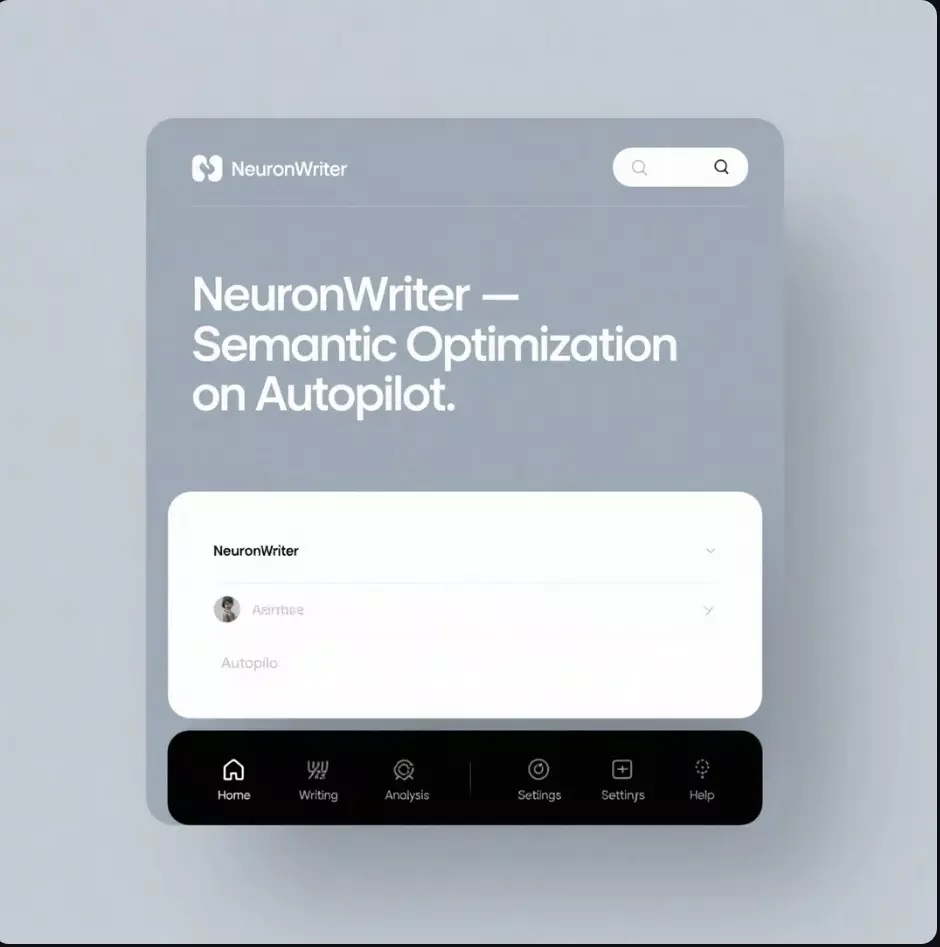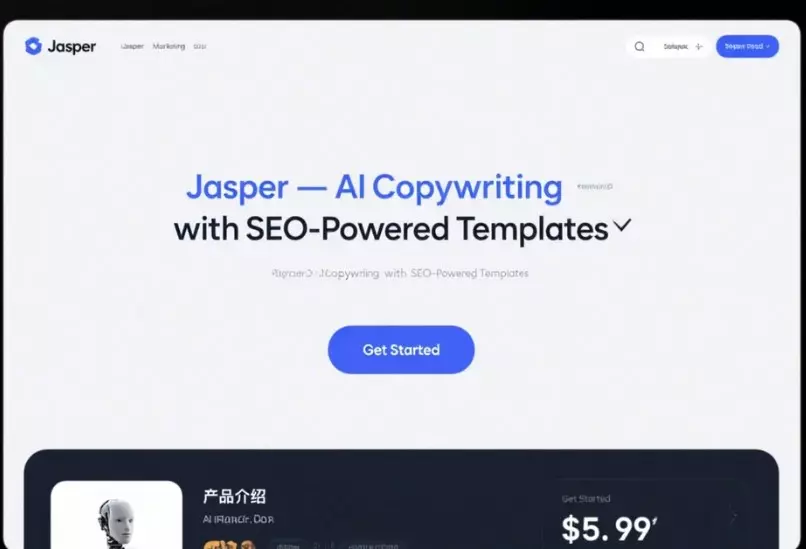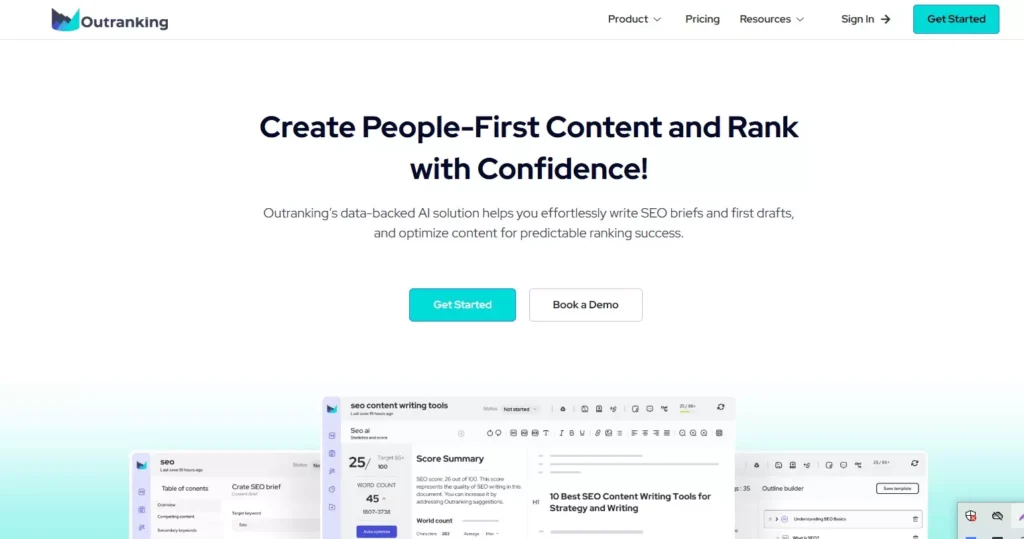
🧠 SEO-Optimized Introduction:
In today’s hyper-competitive digital world, standing out on Google feels impossible—especially for small bloggers competing against massive websites. But what if the game has changed? Thanks to advanced AI SEO tools, even solo bloggers can now analyze data like pros, optimize content in minutes, and climb search rankings faster than ever.
This isn’t just about writing smarter—it’s about leveraging AI blogging tools to outthink the competition. If you’re a content creator wondering how to boost visibility, generate traffic, and win in the world of SEO for bloggers, this journey from underdog to SEO hero might just be your blueprint.
🔍 How AI SEO Tools Help with Keyword Research
Say Goodbye to Guesswork, Hello to Precision
Keyword research used to be a time-consuming task—scrolling through endless spreadsheets, relying on gut feelings, or copying what competitors were doing. But now, AI SEO tools have completely transformed the process. They bring speed, accuracy, and data-driven insights into every step.
With platforms like Frase, NeuronWriter, and SurferSEO, bloggers can:
- Discover long-tail keyword opportunities
- Identify semantic keyword variations
- Find out what real users are asking on Google
- Access search volume, competition level, and intent analysis—all within seconds
These tools don’t just suggest keywords—they interpret search intent and prioritize relevance, ensuring your content matches exactly what your audience is looking for.
🎯 Real Example: From Generic to High-Intent Keyword

Let’s say you want to write about SEO for blogs. A typical beginner might go with a broad term like “blog SEO.” But an AI tool will analyze trends and audience behavior to suggest something far more targeted, such as:
➡️ “SEO tips for food bloggers in 2025”
This keyword is specific, timely, and conversion-friendly. It helps you attract a niche audience with a clear interest—something generic keywords often fail to do.
⚙️ From Manual Process to AI-Enhanced Workflow
| Traditional Keyword Research | AI-Powered Keyword Research |
|---|---|
| Manual analysis from multiple sources | One-click insights with ranked suggestions |
| Guessing user intent | AI interprets and predicts intent |
| Hard to find niche opportunities | AI highlights underused, high-potential keywords |
| Time-consuming and repetitive | Fast, focused, and automated |
AI SEO tools turn keyword research into a science, not an art.
You’re no longer writing based on what might work—you’re creating content that’s backed by real-time search data, user intent, and competitive analysis.
👉 Top 5 AI SEO Tools for Bloggers in 2025
In the fast-paced world of blogging, writing great content is no longer enough. You also need to optimize, rank, and adapt—and that’s where AI SEO tools shine. These tools can save you time, uncover valuable keywords, and help you create content that both readers and search engines love.
Here are the top 5 AI SEO tools every blogger should know and consider using in 2025:
🔍 1. SurferSEO – Your All-in-One SEO Writing Assistant

SurferSEO helps bloggers write content that ranks by analyzing top-performing pages for your target keyword in real time. It shows exactly how many words, images, headers, and keywords your article needs to stay competitive.
Key features:
- Real-time Content Editor with keyword scoring
- SERP Analyzer with AI-based suggestions
- Integration with Google Docs and WordPress
- Built-in keyword clustering
Best for: Bloggers focused on data-driven SEO and long-form content.
🧠 2. NeuronWriter – Semantic Optimization on Autopilot

NeuronWriter is one of the smartest tools when it comes to semantic keyword suggestions and search intent analysis. It uses NLP to help you write content that matches how users (and Google) understand your topic.
Key features:
- Advanced NLP for semantic keyword mapping
- Competitive SERP analysis
- Draft generator based on AI + NLP
- Affordable lifetime plans
Best for: Bloggers who want deep keyword insights without breaking the bank.
✍️ 3. Frase.io – From Idea to Optimized Blog Post in Minutes

Frase does more than SEO—it helps you plan and write your blog post from scratch using AI. You can research questions people ask, generate outlines, and fill in entire sections with AI-generated content tailored to SEO.
Key features:
- Content Brief Generator with SERP analysis
- Answer-targeted question research
- AI writing & content refinement tools
- Integration with Google Search Console
Best for: Solo bloggers who need help researching and writing quickly.
🚀 4. Jasper – AI Copywriting with SEO-Powered Templates

Jasper isn’t just a writing tool—it’s an AI copywriting platform with SEO built in. It offers 50+ templates (including SEO blog posts), long-form assistance, and seamless integrations with SurferSEO.
Key features:
- Blog post wizard with SEO structure
- Templates for headlines, meta descriptions, FAQs
- Collaboration & brand voice memory (Boss Mode)
- Supports 25+ languages
Best for: Bloggers managing multiple niches or brands.
📊 5. Outranking – SEO + AI Workflow Automation

Outranking blends AI writing with SEO SOPs (Standard Operating Procedures). It walks you through a guided workflow to plan, outline, and optimize articles for ranking—ideal for SEO-focused bloggers.
Key features:
- Step-by-step blog workflow (plan → write → optimize)
- SERP overview and schema suggestions
- Real-time SEO scoring
- Built-in plagiarism checker
Best for: Bloggers who want to scale content production with structure and consistency.
🧩 Final Thoughts: Which Tool Is Right for You?
| Tool | Best For | Strength |
|---|---|---|
| SurferSEO | Data-first bloggers | Real-time SEO scoring |
| NeuronWriter | Budget-conscious SEO bloggers | Semantic NLP optimization |
| Frase | Fast-moving solo creators | Research + AI writing |
| Jasper | Multi-brand content producers | Templates + tone of voice |
| Outranking | Process-driven content teams | Guided SEO workflows |
AI SEO tools in 2025 aren’t just helpful—they’re essential. Whether you’re a beginner or a pro, these tools will help you research smarter, write faster, and rank higher. The right one depends on your workflow, budget, and content strategy.

